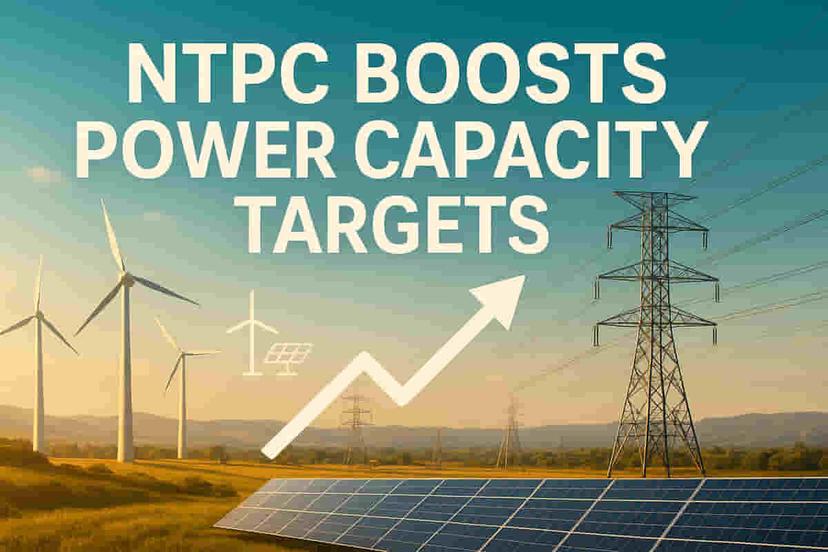Foreign Direct Investment Jumps Five-Fold Via Government Approval Route in Q1 FY25
Economy
|
Updated on 09 Nov 2025, 02:43 pm
Reviewed By
Simar Singh | Whalesbook News Team
Short Description:

▶
Detailed Coverage:
Foreign Direct Investment (FDI) entering India via the government approval route saw a substantial increase of over five times in the first quarter of the current fiscal year (April-June), climbing to $1.36 billion from $209 million in the same period last year. This route is typically used for investments in strategic sectors like defence and atomic energy, or when foreign stakes cross certain thresholds in sectors such as banking, insurance, and telecom. A significant portion of this approved FDI flowed through Cyprus.
In contrast, FDI aimed at acquiring existing shares of Indian companies declined by 11.2% to $3.73 billion during the quarter. This decrease may suggest subdued merger and acquisition activities and a trend of foreign investors exiting through Initial Public Offerings (IPOs) rather than selling to other foreign entities. However, FDI through the automatic route, which is more common, saw an increase to $13.52 billion from $11.76 billion a year ago.
Despite the dip in acquisition-related FDI, total FDI equity inflows for April-June grew by a healthy 15% to $18.62 billion. FDI from China remained negligible at $0.03 million.
Impact: This news indicates positive investor sentiment and a growing inflow of foreign capital, which can strengthen the Indian rupee, boost economic growth, and potentially lead to increased stock market valuations, especially in sectors attracting FDI. The rise in government-approved FDI suggests increased strategic investments.
Difficult Terms: Foreign Direct Investment (FDI): An investment made by a company or individual from one country into business interests located in another country. Government Approval Route: A process where foreign investors need explicit permission from the Indian government before making an investment, usually for strategic or sensitive sectors. Automatic Route: A process where foreign investors can invest without prior approval from the government, subject to certain sectoral conditions. Fiscal Year: A 12-month period that companies and governments use for accounting purposes. In India, it typically runs from April 1 to March 31. Merger and Acquisition (M&A): The consolidation of companies or assets through various types of financial transactions. Initial Public Offering (IPO): The process by which a private company first sells shares of stock to the public.
Energy Sector

NTPC Elevates 2032 Capacity Target to 149 GW, Aims for 244 GW by 2037

Energy, Natural Resources & Chemicals CEOs Optimistic, Prioritizing AI, Talent, and Sustainability

HPCL Rajasthan Refinery Project Set to Complete Next Month

HPCL Rajasthan Refinery Project Nears Completion Next Month

Airbus pitches for Sustainable Aviation Fuel programs to be included under India's CSR framework.

NTPC Elevates 2032 Capacity Target to 149 GW, Aims for 244 GW by 2037

Energy, Natural Resources & Chemicals CEOs Optimistic, Prioritizing AI, Talent, and Sustainability

HPCL Rajasthan Refinery Project Set to Complete Next Month

HPCL Rajasthan Refinery Project Nears Completion Next Month

Airbus pitches for Sustainable Aviation Fuel programs to be included under India's CSR framework.
Commodities Sector

Gold and Silver Prices Poised for Correction Amid US Inflation Data and Policy Uncertainty

Gold Prices Open Higher Amid Global Cues and Wedding Season Demand; Experts Advise Strategic Buying

India's Thermal Coal Imports Rise 3% in October Amid Lower Domestic Output

India's Sugar Production Projected to Soar 16% in 2025-26 Season

Gold and Silver Prices Expected to Consolidate Amidst US Inflation Data and Tariff Uncertainty

Coal India Aims for 875 MT Production Target Amidst Recent Shortfalls and Sluggish Demand

Gold and Silver Prices Poised for Correction Amid US Inflation Data and Policy Uncertainty

Gold Prices Open Higher Amid Global Cues and Wedding Season Demand; Experts Advise Strategic Buying

India's Thermal Coal Imports Rise 3% in October Amid Lower Domestic Output

India's Sugar Production Projected to Soar 16% in 2025-26 Season

Gold and Silver Prices Expected to Consolidate Amidst US Inflation Data and Tariff Uncertainty
